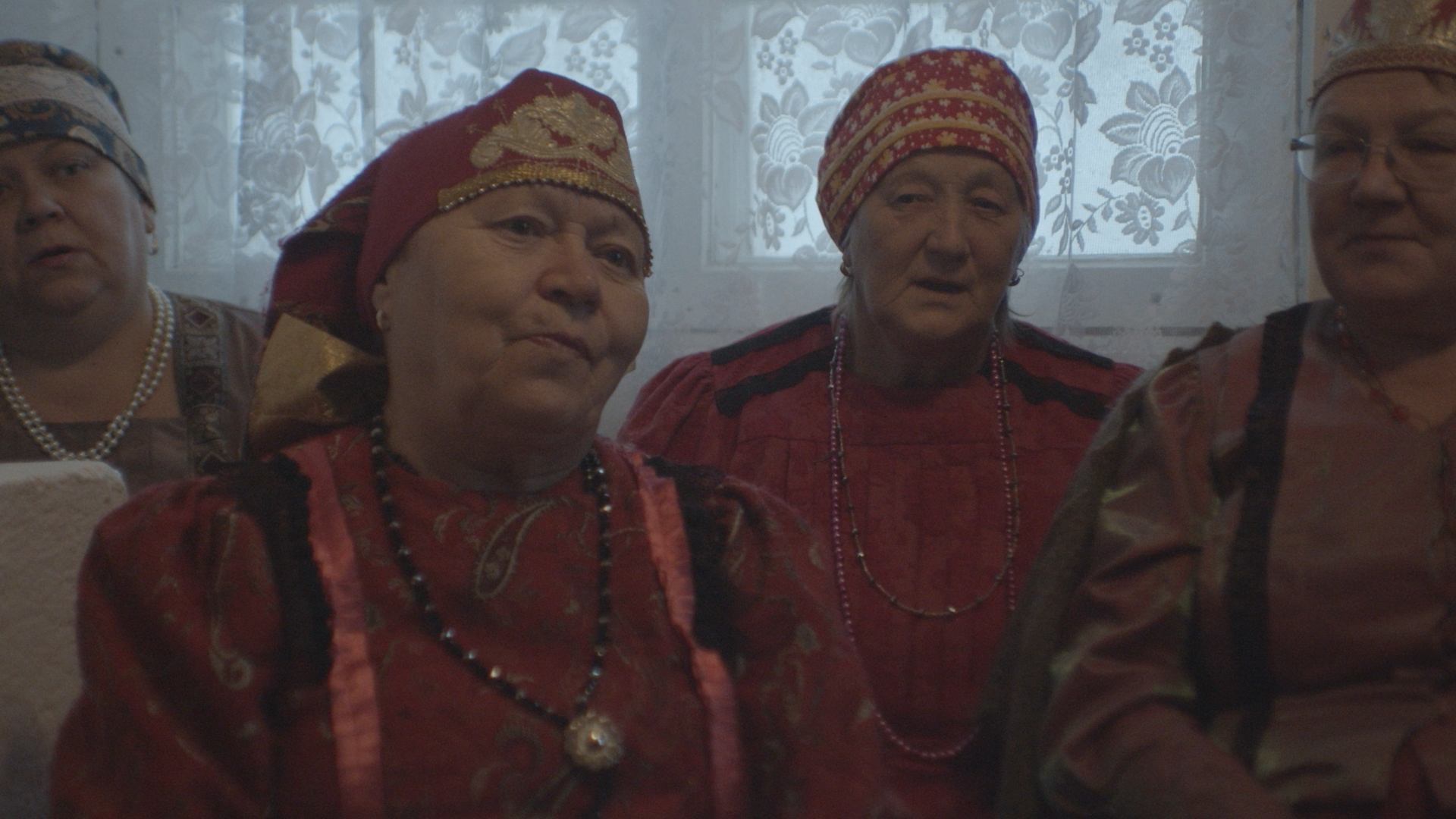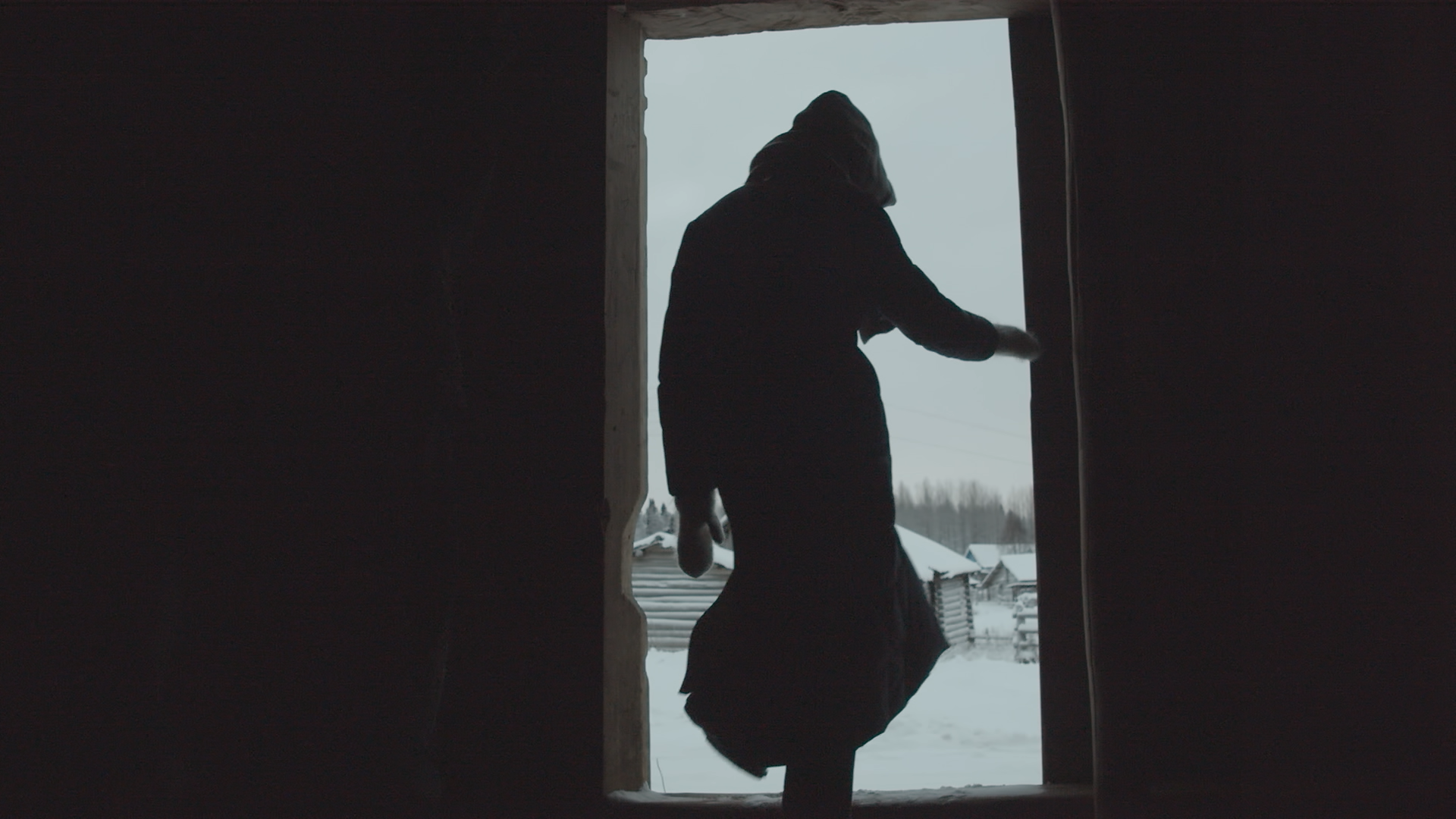Material as the Matter of Stories
New films by Joyce Joumaa and Ruth Maclennan
Jamie Allan




كيف لا نغرق في السراب (To Remain in the No Longer)
Director JOYCE JOUMAA, Year 2023, Country CANADA, LEBANON
A Forest Tale
Director RUTH MACLENNAN, Year 2022, Country RUSSIA, UK
Helicopter blades whirr as we hover above a black and white landscape. From this bird’s eye view, reminiscent of military surveillance imagery, the landscape looks brutalised – barren ground crosscut by dirt roads. As the camera floats further, we begin to realise that this damaged site is in fact a scene of construction; the series of archive photographs show the building of the vast Rachid Karami International Fair in Tripoli, Lebanon. Designed by renowned modernist architect Oscar Niemeyer in 1962, this sprawling 70-hectare complex was meant to represent a utopic vision for a new Lebanon. But with the outbreak of the civil war in 1975, the project ground to a halt. What remains today is a crumbling relic of this failed future.
In To Remain in the No Longer, filmmaker Joyce Joumaa presents not only the complex history of the fairground, but also the national narratives it was designed to construct and uphold. Zooming in from the bird’s eye view (or ‘urban-planning’ view) of the first shots, Joumaa brings us close to the material itself, the concrete of the domes and pillars that were meant to ground this ‘permanent international fair’ in just that, the permanent, the idea of a steady state; a fairground built from the globalised and globalising material of concrete, designed with a global audience in mind.
Through interviews with local people, archive, and observational images of the buildings today, Joumaa moves beyond the intended metaphors of the Rachid Karami International Fair, to present counter-narratives. The decaying state of the concrete structures are paralleled with the collapse of the Lebanese economy. Neither, however, are framed as a natural process of time. As one voice tells us, this is the result of ‘active neglect’, not simply neglect as the act of not caring, but an intentional act of papering over the cracks to hide the real problem – resulting in a collapse that is far more devasting in the long run. Through Joumaa’s precise and structured filmmaking, we are left to ruminate on the meaning of failure, of neglect, and the material reality of collapse.
Ruth Maclennan’s A Forest Tale similarly opens with a bird’s eye view of a vast landscape. This time we are in the sub-arctic forests of Russia, and the gaze is not the overview of an architectural planner, but of a visitor arriving in an unknown land, of a journey opening out before us. Whilst Joumma’s film has concrete as the material from which its buildings and narratives are constructed, Maclennan’s film is built around wood, a material that defines both the environment and the lives of the humans and non-humans in this arctic region. The stories that she encounters tell of a very different vision of an urban plan – one voice talks about the houses of the arctic towns being built “to unfurl towards the sun like a flower”. In these towns – which are already feeling the effects of planetary warming – this ancient ecological material is seen as one way to sustain a liveable future. Wood points to a possible future, but its narrative quality is also born from its history, the tree it was carved from, the knots and grain that remains visible when it is cut into a building material. In Maclennan’s film it feels that time has a similarly organic, looping, and unpredictable quality. Scenes of women singing folksongs and of snow-covered wooden houses return again and again, images that could span centuries. Archive images of hand drawn maps weave in with present-day landscapes, and men in a modern wood workshop build a brand-new ship from a faded 19th century blueprint. Time becomes looser, not quite circular but somehow elastic. As the film comes to a close, it is the heat of burning logs that warms a group of people as they sit around a fire exchanging their forest tales. As the wood is transmuted into a different form it is the human stories that remain in the air.
Jamie Allan is an artist, filmmaker and curator with a background in documentary filmmaking and community cinema. He is interested in the collaborative processes of documentary filmmaking, and how this could inform alternative modes of distribution and exhibition. He has a Masters in Documentary Film Directing from the DocNomads and a Post-Masters in Collective Practices from the Royal Institute of Art, Stockholm. Since 2017 Jamie has been part of Cinecaravan, co-curates the annual HOME Artist Film Weekender and is a programmer for Sheffield DocFest.
This text was commissioned by Open City Documentary Festival to accompany the screening of To Remain in the No Longer and A Forest Tale at Close-Up Film Centre, 7 September 2023.